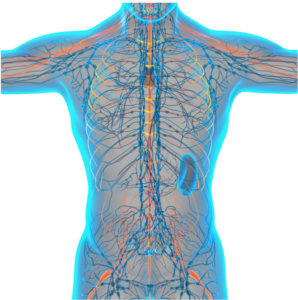Could your Vagus Nerve be causing you Problems?
What is the Vagus Nerve?
The vagus nerve is the longest cranial nerve in the body, connecting our brain to important organs such as the heart, lungs, liver, kidneys, stomach and intestines. It is both a complex and versatile part of the parasympathetic nervous system, which is associated with our ‘rest and digest’ response, promoting relaxation and recovery. It helps with reducing our stress and especially bringing us back to our normal state after a stressful episode.
Acting as a communication facilitator between the brain and the gut … the vagus nerve helps to regulate a wide range of physiological processes in the body such as digestion, heart rate, gag reflex, respiration and anti-inflammatory responses.
You have probably heard the term ‘mind-gut connection’, in addition to the regulation of bodily functions, the vagus nerve is associated with a variety of psychological processes including stress responses and emotional regulation.
What is Vagal Tone and Why is it Important?
Vagal tone is used to describe the overall functioning of the vagus nerve. When vagal tone is high, it means that the parasympathetic nervous system is more active, promoting slower heart rate, easy digestion, less inflammation and a general state of relaxation.
When vagal tone is low, it means that the parasympathetic nervous system is less active and that our sympathetic or stress response system is more active.
As the vagus nerve helps regulate inflammation in the body when its function is compromised, inflammation increases, activating the body’s sympathetic nervous system, or, ‘fight or flight’ stress response.
 Vagus nerve dysfunction can appear in a wide range of conditions, including the following:-
Vagus nerve dysfunction can appear in a wide range of conditions, including the following:-
- Gastrointestinal issues such as irritable bowel syndrome and acid reflux
- Coughing or swallowing issues
- Cardiovascular conditions such as irregular heart rate, heart palpitations and high or low blood pressure
- Respiratory issues such as asthma and COPD
- Headaches and migraines
- Insomnia, anxiety, panic attacks
- Depression or low mood
- Autoimmune disease
- Chronic pain
- Increased inflammation
Vagus nerve dysfunction can occur for a number of reasons, including emotional or physical trauma, physical injuries, infection and stress. Without increasing vagal tone, dysfunction leads to a vicious cycle of stress which leads to further dysregulation, which leads to even more stress!
How to Treat Vagal Dysfunction
Does any of this sound like you? Help is at hand! We can help improve vagal tone using Frequency Specific Microcurrent (FSM). FSM is a safe, painless and non-invasive treatment that uses a mild electrical current to target specific conditions and areas of the body. FSM treatments can deliver significant changes, with some people feeling the results of a treatment immediately.
By using specific frequencies, we can improve vagal tone, restore better sympathethetic and parasympathetic balance and reduce stress. Improving vagal tone helps result in the restoration of effective communication by the vagus nerve to the organs to restore harmony to both your body and mind.
For more information on Frequency Specific Microcurrent click here.



